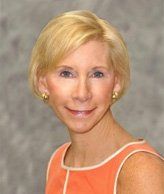The F-Word
Fat. It isn’t said in polite company, and doctors never use it with patients because it is considered rude and inflammatory. But fat is now a disease. OK-obesity is a disease. The American Medical Association has proclaimed it as such, and now we are free to discuss it unhindered by rules of etiquette.
Rebecca Bechhold, MD

Fat. It isn’t said in polite company, and doctors never use it with patients because it is considered rude and inflammatory. But fat is now a disease. OK-obesity is a disease. The American Medical Association has proclaimed it as such, and now we are free to discuss it unhindered by rules of etiquette.
For oncology patients, weight control should be a significant part of their health plan and survivorship. When the Arimidex, Tamoxifen, Alone or in Combination (ATAC) trial data were scrutinized for the effect of body mass index (BMI) on recurrence rate, they concluded that “these results confirm the poorer prognosis of obese women with early-stage breast cancer.” A more recent issue of the Journal of Clinical Oncology reported on a prospective look at BMI and colon cancer. Their conclusion: “Data from this large prospective study suggest that obesity is important throughout the natural history of colorectal cancer, at least in men, and colorectal prevention efforts should encourage the achievement and maintenance of a healthy body weight in addition to regular screenings.”
So why do doctors, particularly oncologists, fail to openly discuss weight with their patients? This should be front and center for any follow-up schema. We want to be certain we order plenty of blood tests and scans, but we say nothing when the BMI is high. Do you even note the BMI? It should be one of the vital signs you monitor. Especially for breast and colon patients, weight and exercise are crucial to improved survival-not to mention the cardiovascular benefits.
Too often we are quick to prescribe a drug, a pill, and fail to partner that intervention with sound lifestyle advice and encouragement. If the doctor says to start a diet, it carries more “weight.” Pardon the pun! And it doesn’t take a lot of time to spell out diet and exercise advice. Have a few brochures to offer. In fact, you can pick up any magazine, any month, and it will have sound advice on diet and exercise. Sometimes I wonder how they find ways to say the same thing month after month, year after year. Really, Jane Brody said it best in her “Personal Health” column for the New York Times,“No Gimmicks: Eat Less and Exercise More.” Or as Michael Pollan, author of The Omnivore’s Dilemma, advises: “Eat food. Not so much. Mostly plants.”
I discuss diet and exercise with virtually every patient on follow-up and all early-stage breast cancer patients from day one. I laud those who are healthy at the start and encourage their continued lifestyle choices. For those who need help, I ask what has prevented them from exercising or eating well, and try to help them see small changes that they can make to get started on the road to better weight management. I am their most enthusiastic cheerleader for even small improvements. It is shocking how many tell me that no other physician has ever broached the subject with them.
Full disclosure-my BMI is 18; I am a competitive athlete; I thrive on working out; and to the ongoing astonishment of our office staff, have eaten the same breakfast and lunch daily for decades. But I am also a chocoholic and love my martinis. So, I am no food freak and do not promote that attitude. People never hesitate to call me skinny or suggest I eat a cheeseburger once in a while. But why is that acceptable but saying someone is fat or obese or overweight is considered extremely rude? It is all contexts. We all have different body habitus, and everyone does not look like my build. You can be very fit and healthy, and not be rail thin. You can also be thin and very unfit.
What you have to do is put down the fork, and get up and move. We have become a sedentary society, sitting at our computers or televisions. Even people who exercise regularly may not be offsetting the long hours that they sit at a desk. Many of my friends and I are now wearing Fitbits or equivalent devices to help us move more. They are really just elaborate pedometers, but you can set goals, and monitor food intake, activity, sleep, and calories burned. It would shock you how few steps you take on a daily basis. An inexpensive pedometer (we give them out at the office) can be a great motivator to get up out of the chair and go for a brisk walk, or to walk to another part of the office to speak to someone instead of emailing. I now park further away from the door at every destination, find reasons to walk in the office, and have added extra movement to my workout schedule.
If we are going to advise patients about a healthy lifestyle, we must look like we are making the same effort. Gather some resources, talk to your patients, be a role model. Eat less. Exercise more. Let’s not have to use the F-word anymore.